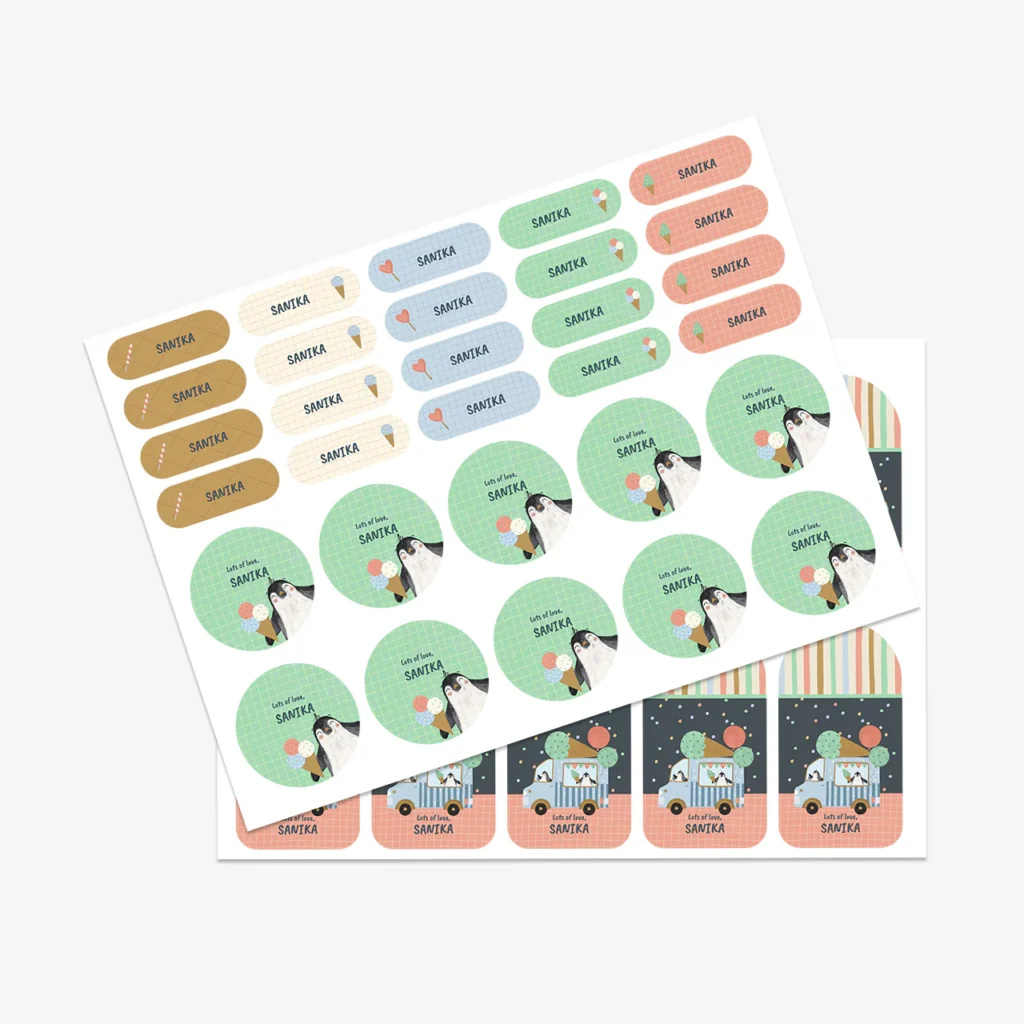Gut health is everywhere these days, right? From the latest celebrity wellness trends to the aisles of your local pharmacy, it seems like everyone’s talking about it. But when you dive deeper, the sea of gut health supplement is flooded with so many products that it can be overwhelming to figure out what’s real and what’s just hype.
You’ve probably seen the ads: probiotics that promise to “reset” your gut, detox teas that claim to boost digestion overnight, and magical powders that can supposedly fix everything from bloating to immunity. But what’s going on inside your gut, and which supplements can make a difference?
In this blog, we’ll break down the truth about gut health supplement, separating fact from fiction so you can make informed decisions on what’s worth your time (and money).
Why Gut Health Matters: The Basics You Should Know
Before we dig into the supplements, let’s take a quick refresher on why gut health is so crucial. Your gut isn’t just about digestion; it’s the epicenter of your overall health. Did you know that about 70% of your immune system resides in your gut? Or that your gut microbiome (the trillions of bacteria and microbes that live in your intestines) plays a huge role in regulating your metabolism, mood, and even brain function?
When things are out of balance in the gut, it can show up as:
- Digestive issues like bloating, gas, and constipation
- Low energy or chronic fatigue
- Anxiety or mood swings
- Skin problems (like acne or eczema)
- Weakened immunity or frequent illness
Taking care of your gut is no longer just a wellness trend; it’s essential for maintaining a healthy mind and body.
Gut Health Supplements: What Actually Works?
Now, let’s talk supplements. The market is packed with products claiming to do it all: from improving digestion to boosting your mood. But which ones live up to their promises? Let’s break down the most popular gut health supplements and the science behind them.
1. Probiotics: The Gut’s Friendly Bacteria
Probiotics are probably the most well-known gut health supplement. They’re live bacteria that help replenish the good microbes in your gut, especially if you’ve been dealing with issues like antibiotic use, stress, or a poor diet.
Does It Work?
Yes, probiotics can be beneficial, but not all probiotics are created equal. Different strains of bacteria have different effects, so it’s essential to choose a probiotic that targets your specific needs (e.g., Lactobacillus for digestive support or Bifidobacterium for immunity). Probiotics can help with issues like:
- Irritable bowel syndrome (IBS)
- Inflammatory bowel disease (IBD)
- Diarrhea and constipation
The Catch:
Not all probiotics are effective for everyone, and dosage matters. Be wary of generic supplements with “proprietary blends” that don’t disclose strain types or CFU (colony-forming units). To maximize effectiveness, it’s important to select supplements that list the specific types of probiotic strains included. This can help ensure you’re getting the right bacteria to support your gut health needs.
2. Prebiotics: Feeding Your Good Bacteria
Prebiotics are a type of fiber that feeds your good gut bacteria. Unlike probiotics, prebiotics don’t contain live bacteria, but they help your existing microbes thrive. Common prebiotics include inulin (from chicory root) and FOS (fructooligosaccharides).
Does It Work?
Absolutely. Prebiotics are great for gut microbiome diversity, which is key to maintaining overall gut health. Studies show that prebiotics can improve digestion, immune function, and even reduce gut inflammation.
The Catch:
Prebiotics may cause bloating or gas in some people, especially those who are sensitive to fiber or have gut issues like small intestine bacterial overgrowth (SIBO).
3. Digestive Enzymes: Helping You Break Down Food
If you often experience bloating or discomfort after eating, digestive enzymes might be worth considering. These enzymes break down proteins, fats, and carbohydrates, aiding your digestion process.
Does It Work?
Yes, digestive enzymes can be helpful for people with food intolerances or those who experience digestive upset after meals. They can assist in breaking down hard-to-digest foods, making it easier for your body to absorb nutrients.
The Catch:
While enzymes can ease digestive symptoms, they don’t treat the underlying cause of digestive issues. If you have chronic gut problems, you may need additional support like probiotics or dietary changes.
4. Fiber Supplements: Supporting Healthy Digestion
Fiber is the unsung hero of gut health. It helps keep things moving, prevents constipation, and feeds your healthy gut bacteria. Fiber is typically best when it comes from whole foods (fruits, vegetables, and whole grains), but fiber supplements can be useful for those who struggle to get enough from their diet.
Does It Work?
Yes! Fiber is essential for maintaining regular bowel movements and gut motility. For many people, a fiber supplement like psyllium husk or methylcellulose can provide much-needed relief from constipation and promote a healthier gut.
The Catch:
Fiber supplements should be introduced gradually to avoid bloating or discomfort. Make sure to drink plenty of water to help fiber move through your digestive system.
5. Collagen: The Gut’s Building Block
Collagen supplements have gained popularity for their benefits to joint and skin health. But did you know that collagen is also a key player in gut health? Collagen helps repair the gut lining, which can be crucial for those with conditions like leaky gut or other digestive issues.
Does It Work?
Yes. Collagen peptides can support the integrity of the intestinal barrier, reduce gut inflammation, and even improve digestion. Studies have shown that collagen can improve conditions related to intestinal permeability (aka leaky gut), where the gut lining becomes weakened.
The Catch:
Not everyone experiences significant results with collagen, and it’s often used best in combination with other gut health supplement like probiotics and digestive enzymes.
What’s Just Hype?
Now, let’s address the supplements that don’t always live up to their promises.
Detox Teas & Cleanses:
Many people swear by detox teas or cleanses for improving digestion or losing weight, but these products often come with harsh laxatives and have little to no evidence supporting their effectiveness long-term. They may lead to temporary water weight loss, but they don’t address the root causes of gut imbalance.
Gut Health Powders:
While some gut health powders contain beneficial ingredients like probiotics, prebiotics, and fiber, many of them are marketed with vague claims that aren’t backed by science. Always check the ingredient list for transparency and avoid products with hidden proprietary blends.
How to Choose the Right Gut Health Supplement
When looking for a gut health supplement that works, here’s what to keep in mind:
- Be specific: Know your gut symptoms and choose supplements that target them (e.g., probiotics for IBS, fiber for constipation).
- Check for transparency: Look for clear labeling, no proprietary blends, or vague ingredient lists.
- Quality matters: Choose supplements from brands that test their products for purity and bioavailability.
- Stick to the basics: More isn’t always better. A simple, clean product with a few effective ingredients is often the best choice.
Conclusion: Navigating the World of Gut Health Supplements
The world of gut health supplement can feel like a maze of marketing and claims, but armed with knowledge, you can make smart decisions. While probiotics, prebiotics, and digestive enzymes are among the most scientifically supported options, it’s important to approach any supplement with clear goals in mind and a focus on what truly works.
Remember, the foundation of a healthy gut starts with a balanced diet, good sleep, and stress management. Supplements can support, but they’re not a substitute for a healthy lifestyle.
FAQs
Q1: How do I know which gut health supplement is right for me?
Start by identifying your symptoms,whether it’s bloating, constipation, or fatigue,and choose a supplement that specifically addresses your needs.
Q2: Can gut health supplements help with weight loss?
While they may improve digestion and support metabolism, supplements alone are unlikely to cause significant weight loss. A balanced diet and exercise are key.
Q3: How long does it take to feel the effects of a gut health supplement?
Results vary, but most people start to notice improvements in digestion and energy within 2-4 weeks of consistent use.
Q4: Are all probiotics effective?
Not all probiotics work the same. It’s essential to choose strain-specific probiotics, as different strains have different effects on the gut.
Q5: Are gut health supplements safe for long-term use?
Generally, yes. However, it’s always best to consult with a healthcare provider if you plan to take supplements long-term.



